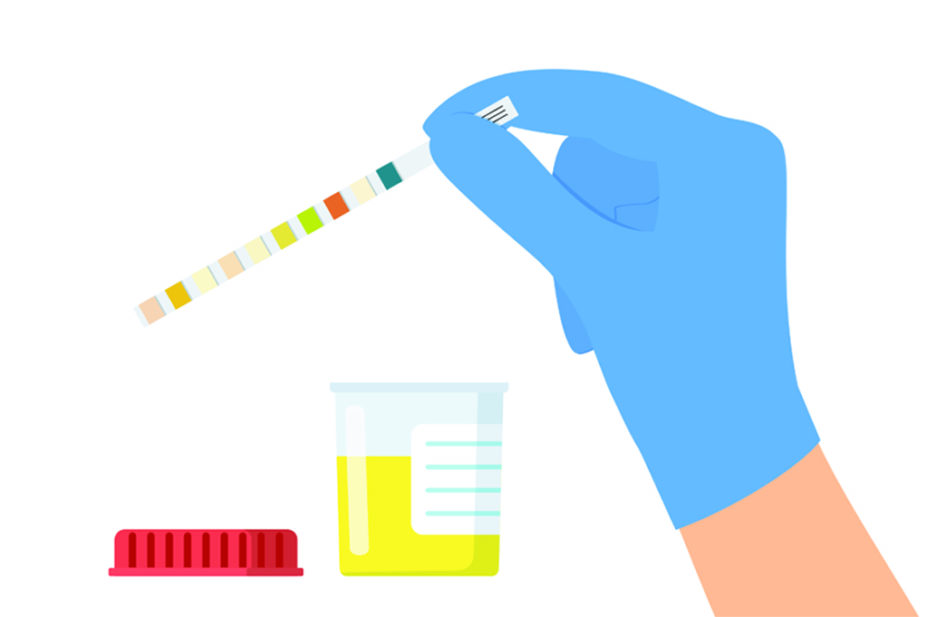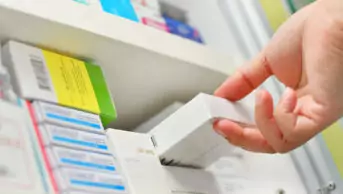
Shutterstock.com
In February 2021, we reported on an evaluation of our community pharmacy patient group direction (PGD) service for the management of suspected urinary tract infections (UTI) in females[1]. That report looked at 271 supplies of nitrofurantoin recorded by the PharmOutcomes platform during July 2019. All 271 women were recorded as receiving a ‘Treat antibiotics responsibly, guidance, education, tools’ toolkit and advice from the community pharmacy. In that evaluation, we found a small number of women who had been recorded on GP systems as requiring further antibiotic treatment for their UTI and concluded that re-treatment levels may require further monitoring, if possible.
Unsurprisingly, looking at the number of monthly issues of nitrofurantoin through this service from April 2019 to December 2022, each of the annual periods shows a peak during the summer months, owing to UTIs being more common at this time of year and an increase in supply to holiday-makers. What is also of interest — and we believe not reported on before in relation to a pharmacy service for antibiotics — is how the pandemic impacted this service. There was a noticeable reduction in the rate of supply in May to June 2020 and again in January to April 2021.
Other factors affecting the service between April 2019 and December 2022 include the removal of the requirement for dipstick analysis in June 2019; pharmacies being allowed to consult for the PGD by telephone in March 2020 during lockdown; and the age limit reducing to 65 years from 75 years on 1 April 2021.
The practicality of community pharmacy consultation room space was a problem during the pandemic, owing to close contact
It is recognised that the practicality of community pharmacy consultation room space was a problem during the COVID-19 pandemic, owing to close contact, and this may have discouraged females from attending. The flexible provision of opening hours by some contractors in response to workforce pressures may also have reduced access to the service in some localities during this period.
There were 480 consultations from October to December 2022, with 437 of these resulting in a supply of nitrofurantoin. During this period, three women accessed the service twice by presenting to the same pharmacy on both occasions. In two of these cases, the patient was supplied with antibiotics on their first visit and given advice only (which may include referral to another clinician) on her second visit. The third patient was supplied with two courses of treatment; this was queried with the supplying pharmacy, which has updated its processes to prevent this happening in the future. There were no instances of any one woman receiving multiple courses of antibiotic treatment from different pharmacies. PharmOutcomes allows the pharmacist to view any previous consultations recorded for the presenting patient, including those that have taken place in other pharmacies, rather than relying solely on the history provided by the patient.
In general, studies from primary care in England have shown an overall decrease in antibiotic prescribing during 2020 compared to pre-pandemic[2–4]. A relatively small reduction was found in prescribing of first-line antibiotics for UTI in one study, while UTI consultation rates declined substantially across the pandemic period in another study[2,3]. GPs have reported that antibiotic prescribing for UTIs and skin infections was less affected by COVID-19 because they were perceived as more easily managed remotely than respiratory tract infections[5].
The PGD template published by the Specialist Pharmacy Service in January 2023, as well as the national framework for the supply of antimicrobials under a PGD, will require us to review our service going forward[6,7]. Two suggested service requirements in particular are challenging[7]. First, the requirement to ascertain reliable medication history information to identify previous exposure to antimicrobials within the past three months and, where applicable, to access results of relevant microbiology laboratory microscopy, culture and susceptibility testing. While pharmacists can view consultations for the presenting patient undertaken by other providers and access the patient’s summary care record alongside the pharmacy’s own records, they remain at least partially reliant on the history given by the patient, particularly out of hours when GP practices are closed.
Second, the requirement for follow-up by making contact with patients at an appropriate time interval after the consultation, including record-keeping of clinical outcome, any further healthcare resource utilisation linked to this episode of care and any adverse events. Discussions with Cornwall and Isles of Scilly Local Pharmaceutical Committee are underway as to how this can best be implemented while minimising additional administrative requirements and workload on pharmacies in the area, along with suitable remuneration for this additional stage of the service.
It is proposed that, during the initial consultation, the patient and pharmacist will agree a mutually convenient time and mechanism for the follow-up to take place (usually by telephone). There remains the possibility of patients being lost to follow up, despite a pharmacist’s best attempts to make contact. We are grateful to NHS England Midlands, where a follow-up process has been in place since 1 April 2022, for sharing its experiences of implementing such a system.
Two of the suggested service requirements within the risk assessment framework cannot be implemented owing to limitations beyond our control[7]. The NHS Business Services Authority has advised that it does not currently have the capability to receive antimicrobial PGD dispensing data from pharmacies for reporting alongside GP prescriptions and we have been unable to identify a source of information regarding “usual care outcomes” for the purposes of comparison with PGD outcomes.
In summary — and recognising the concern about the risk of increasing the unnecessary use of antimicrobials via a PGD service and the resulting impact on antimicrobial resistance — we believe that this local service continues to provide benefit to patients. However, we do note that the exclusion criteria are such that a pharmacy service that avoids six or so GP consultations per day may not be viewed by some as significantly reducing GP workload.
- 1Evaluation of a community pharmacy service for uncomplicated urinary tract infection. Pharmaceutical Journal. 2021. doi:10.1211/pj.2021.1.42895
- 2Armitage R, Nellums LB. Antibiotic prescribing in general practice during COVID-19. The Lancet Infectious Diseases. 2021;21:e144. doi:10.1016/s1473-3099(20)30917-8
- 3Hussain AZ, Paudyal V, Hadi MA. Impact of the COVID-19 Pandemic on the Prescribing Patterns of First-Line Antibiotics in English Primary Care: A Longitudinal Analysis of National Prescribing Dataset. Antibiotics. 2021;10:591. doi:10.3390/antibiotics10050591
- 4Rezel-Potts E, L’Esperance V, Gulliford MC. Antimicrobial stewardship in the UK during the COVID-19 pandemic: a population-based cohort study and interrupted time-series analysis. Br J Gen Pract. 2021;71:e331–8. doi:10.3399/bjgp.2020.1051
- 5Borek AJ, Maitland K, McLeod M, et al. Impact of the COVID-19 Pandemic on Community Antibiotic Prescribing and Stewardship: A Qualitative Interview Study with General Practitioners in England. Antibiotics. 2021;10:1531. doi:10.3390/antibiotics10121531
- 6Supply of nitrofurantoin capsules/tablets for the treatment of Urinary Tract Infection (UTI): PGD template. Specialist Pharmacy Service. 2023.https://www.sps.nhs.uk/articles/supply-of-nitrofurantoin-capsules-tablets-for-the-treatment-of-urinary-tract-infection-uti-pgd-template (accessed Feb 2023).
- 7Framework for risk assessment of infection management patient pathways encompassing supply of antimicrobials under a patient group direction (PGD). NHS England and NHS Improvement AMR Programme Board 2022.
You may also be interested in

Government advises chief pharmacists to coordinate aid between trusts amid radioisotope shortage

Mandatory ‘eight-week buffer stock’ requirement not met by medicine suppliers, reveals audit
